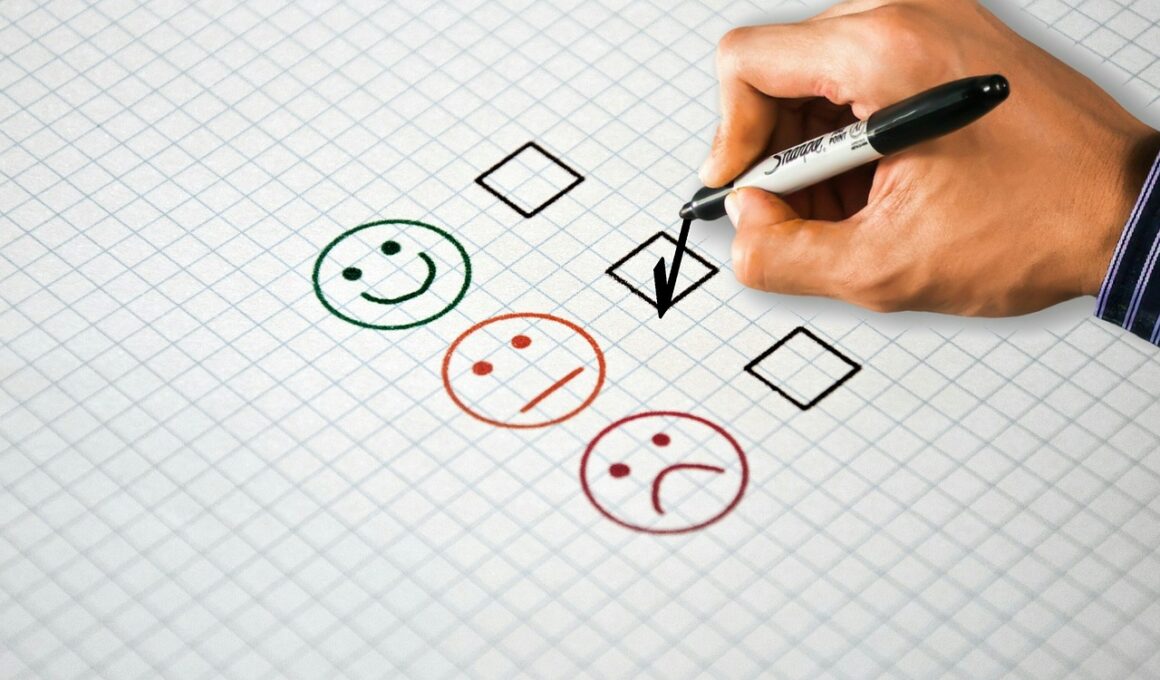Using Feedback and Surveys to Improve Future Events
Event marketing has evolved significantly, with feedback and surveys playing crucial roles in shaping future events. As event organizers strive for excellence, gathering insights from attendees becomes vital. An effective strategy involves designing surveys that ask the right questions to elicit meaningful feedback. Start by focusing on the overall experience and identify key performance metrics. Questions targeting venue satisfaction, speaker effectiveness, and engagement levels hold valuable information. Creating a balance between quantitative and qualitative questions enhances the feedback’s depth. For example, include rating scales alongside open-ended questions to grasp attendees’ sentiments. Additionally, consider timing when distributing surveys; a post-event survey, delivered shortly after the event concludes, captures immediate impressions while the experience is fresh. Incentives also encourage participation, such as offering discounts to future events or raffles. Moreover, utilizing digital platforms streamlines the feedback collection process, making it easily accessible for attendees. Remember, the collected feedback isn’t merely data but a crucial roadmap to elevate future events, ensuring that your marketing strategies continually improve and resonate with audiences.
Once your feedback is collected, the real work begins—analyzing the data. Begin by categorizing responses, segmenting them into positive, negative, and neutral feedback. This will help understand what worked well and what needs enhancement. Creating a spreadsheet to visualize trends can be effective. Look for recurring comments and patterns that indicate common themes among participant experiences. Guest opinions about the venue, catering, and available amenities should be prioritized. Embrace both praise and criticism, as each reveals opportunities for growth. It may also prove beneficial to incorporate competitor analysis by comparing feedback from your events with those in the industry. Assess what peers are doing differently or innovatively. Implementing changes based on thorough analysis can result in profound improvements for upcoming events. Moreover, using feedback to inform marketing materials is advantageous; highlight strengths and address weaknesses. Such transparency enhances your credibility and fosters a sense of trust among attendees. This data-driven approach ensures your efforts reflect participant expectations, building a loyal audience base that appreciates your commitment to continuing improvement.
Leveraging Technology for Surveys
In the digital age, leveraging technology to distribute surveys and gather feedback efficiently is essential. Utilize online tools that allow for easy survey creation and distribution, such as Google Forms or SurveyMonkey. These platforms offer user-friendly interfaces that enable event organizers to customize their surveys according to specific needs. Additionally, they provide real-time analytics to help track responses and analyze results swiftly. Integrating these surveys into event apps increases engagement; notifications can prompt attendees to provide feedback during or immediately following the event. Moreover, social media platforms can serve as additional channels for gathering opinions and comments. Polls on Facebook and Twitter can enhance outreach, reaching audiences who may not have attended but are interested in future events. Social sharing also amplifies the reach of surveys, drawing in more responses. As organizations tap into participant preferences, customization becomes critical. Tailor surveys not just to the event type but to the audience demographics, ensuring relevance and enhancing response rates. Technology can simplify gathering feedback, translating it into actionable plans for future events.
Following data collection and analysis, it’s crucial to act upon the insights gathered effectively. Successful event marketing hinges on the implementation of feedback. Make sure to identify key takeaways from surveys that lead to tangible changes. Start with low-hanging fruit, like modifying simple logistical details such as registration processes. Once the immediate changes have been made, develop a strategic plan for more significant adjustments over time to ensure continual improvement. Sharing changes made based on feedback with past attendees can foster trust and encourage future participation. Moreover, crafting case studies based on feedback can illustrate both your organization’s responsiveness and commitment to growth. It can also serve as a potent marketing tool, showcasing how previous events have evolved and improved. Collaborating within your team to develop a comprehensive actionable plan will ensure each member understands their role in enhancing future events. Establishing a feedback loop creates a culture that values the participant’s voice, strengthening the relationship between organizers and attendees, thus positioning your brand as a listener and leader in the event marketing industry.
The Importance of Continuous Improvement
Event marketers must recognize that feedback is an ongoing process, not a one-time event. Each experience provides the opportunity for learning, enabling you to refine your strategies continuously. A successful event will motivate you to grow and adapt your approach as trends and preferences change over time. Regularly scheduled evaluations should become standard practice for every event. Additionally, maintaining open communication with attendees between events keeps your audience engaged and invested in your brand. Create an annual feedback tradition where attendees contribute insights on their experiences at all annual events. This engagement will foster a sense of community, motivating them to participate actively in future iterations. Implementing a cycle of constant review and improvement helps create a positive reputation in the industry. Attendees will appreciate the willingness to adapt to their preferences, enhancing both satisfaction and loyalty. Prioritizing ongoing improvement also positions your organization as an industry leader, setting the pace for competitors. When the groundwork for improvement is established as routine, transforming feedback into actionable insights becomes part of your event culture, ultimately leading to greater overall success.
Moreover, involving your staff in the feedback process enriches the experience. Employees often encounter first-hand the challenges attendees face and include insights that surveys might not capture. Organizing post-event reflection sessions where team members discuss their observations encourages an environment of shared growth. This internal feedback loop fosters collaboration and ensures that insights from each department are integrated into future planning. Additionally, encouraging team members to share their ideas for improvements nurtures creativity and innovation within your staff. The resulting synergy can lead to enhancements that may not have been considered otherwise. As a unified team focuses on the same goals of excellence, the collective perception of the event can improve significantly. Remember, the journey towards achieving a successful event is inclusive; gather ideas from different perspectives and ensure everyone has a voice. Furthermore, investing in team development will empower your staff, enabling them to grow alongside the evolving expectations of your event attendees. Together, employees and participants can establish a culture of excellence that propels your organization to new heights.
Final Thoughts on Event Feedback
In conclusion, effectively utilizing feedback and surveys to improve future events is a necessity in today’s competitive environment. Ignoring attendee input can stifle growth, so make it a priority to seek and embrace feedback actively. A process of continuous evaluation, combined with technology’s benefits, can streamline and enhance your approach to event marketing. Be proactive rather than reactive; the proactive gathering of insights provides a roadmap towards better experiences. As you move through this journey, maintain open lines of communication with both attendees and your team. A positive approach towards constructive criticism will foster relationships built on trust and transparency. Make data-driven decisions an integral part of your strategy, translating insights into meaningful changes that will delight future audiences. By establishing a culture that values feedback, your organization will remain adaptable and relevant in the ever-evolving event landscape. Ultimately, putting attendee experiences at the forefront will elevate your events, ensuring long-term success and growth, allowing your organization to thrive in a dynamic market.
The strategic use of feedback in event marketing leads to sustainable growth and loyalty. As you progress, keep refining your methods, gathering insights, and translating them into actions that resonate with your audience’s expectations. Innovations, fueled by participant feedback, are pathways to excellence in event marketing, resulting in memorable and impactful experiences. Harness the power of feedback and surveys today—a step towards success that will enhance future events beyond imagination.


